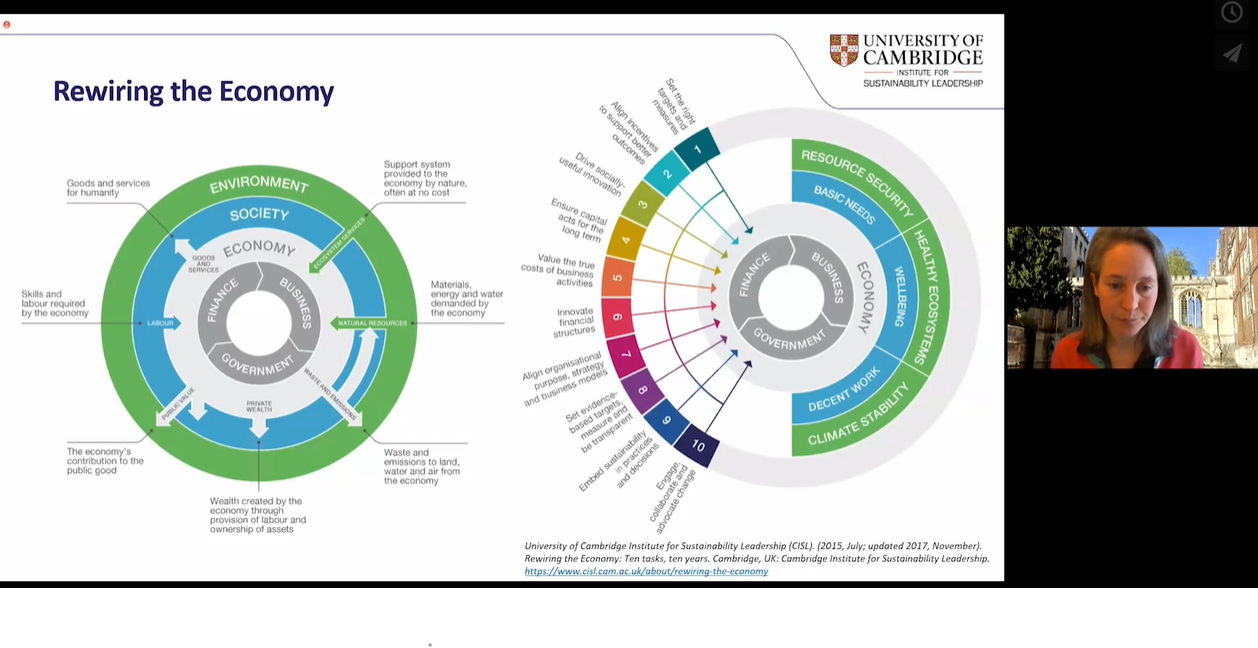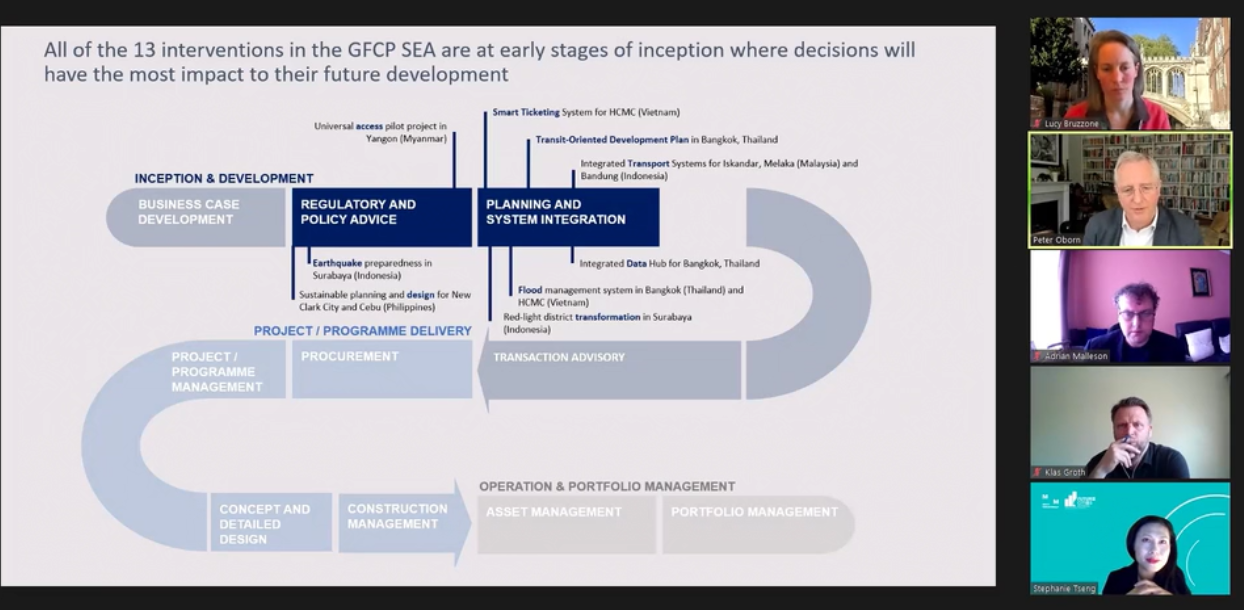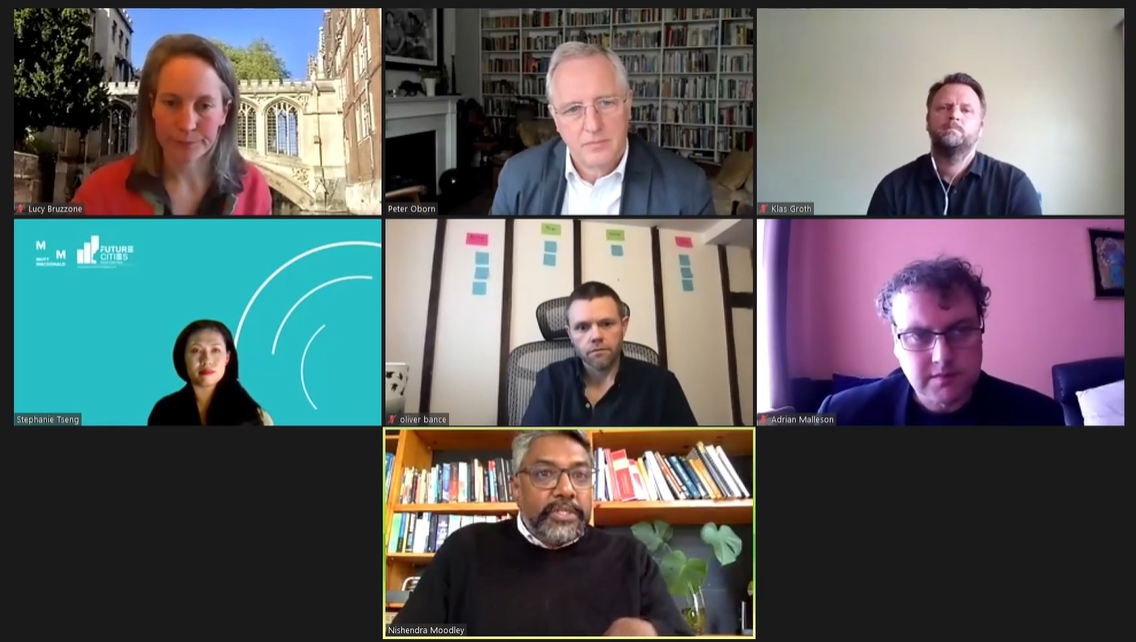Reflections on the Capacity Development Thematic Programme
Nairobi, 11 March 2021 – What capacities and leadership skills are needed to build back better towards inclusive and sustainable urban development? Cities, private sector and other stakeholders shared reflections on six Capacity Development sessions as part of the Global Future Cities Programme.
The UK Built Environment Advisory Group (UKBEAG) concluded its Capacity Development Thematic Programme with a session titled “Reflections on the Series & Next Steps.” Overall, the thematic programme builds upon 7 inter-related events and has so far attracted more than 500 participants, the majority of whom represented the 19 cities engaged in the Global Future Cities Programme. The session included interventions from participating cities, including Belo Horizonte and Recife (Brazil), Iskandar (Malaysia), Bangkok (Thailand), Abeokuta (Nigeria), and from Delivery Partners including Mott MacDonald, Adam Smith International and Future Cities South Africa. The session’s keynote presentation was delivered by Cambridge Institute for Sustainability Leadership, and included remarks from UN-Habitat, UK BEAG, UK Foreign, Commonwealth and Development Office (UK FCDO), and the Royal Town Planning Institute (RTPI).
Peter Oborn, the chair of the final session, opened with reflections on lessons learned from the previous sessions. Through a poll shared with participants on the screen, Peter Oborn pointed out that governance and collaboration is the most dominant challenge, correlating with the poll results from the first session.
Recapping on the 6 previous sessions held: the first session discussed COVID-19 recovery and building back better. The second session integrated and inclusive urban planning, and the importance of engaging vulnerable communities. The third session emphasized the need for coordinated and integrated approaches among stakeholders for providing unified services, highlighting the importance of governance and collaboration. The fourth session discussed the use of evidence and data in targeting and allocation of resources and forecasting demand. The fifth session showcased the use of own source revenue and the importance of a robust business case. The sixth session emphasized the value of project assurance reviews and smart procurement.
The session invited participants to share their experiences and key takeaways from the thematic sessions. Jean Matos from Belo Horizonte, Brazil, stated the importance of collaboration and leadership, as well as the use of evidence-based design. Rafael Figuieredo from Recife, Brazil, also discussed the need for integration between different sectors and fields. Anusha Magendram from Malaysia stated that “good governance is to overcome key challenges with better policies and implementation”. She also highlighted the importance of alignment to the SDGs, referencing the examples presented by Bristol during the previous sessions. Kamisa Ghazali from Iskandar Malaysia highlighted the need for effective communication: “everyone needs to be together to get the roadmap right”. She also stated that the Programme has highlighted the importance of inclusion of Gender and Social Inclusion (GESI), and the government has since established a GESI consultative group. Prasopsook Pimpagovit, from Bangkok, Thailand, called for the need for collaboration with the national government and the private sector, and the importance of effective data use. The last speaker of this segment, Oluwatosin Akinleye, from Abeokuta, Nigeria, stated the importance of finding common purpose to resolve the challenge of competing interests.
Lucy Bruzzone, from the Cambridge Institute for Sustainability Leadership, presented the importance of leadership in driving change. To do so, she emphasized the need to think about the system and the interface between the different stakeholders. Bruzzone provided three recommendations for leading change: think about yourself and the role you can play, think about others and how to engage them with, and think about the system.

Peter Oborn opened the floor to the delivery partners, who are currently implementing the projects in the 19 cities of the Global Future Cities Programme. Stephanie Tseng from Mott MacDonald (Southeast Asia) highlighted the role of the delivery partner as an integrator, working with the cities as a team and ensuring continuous collaboration. Oli Bance, from Adam Smith International (Nigeria), discussed the approach on landing change and transferring it to the team. To do so, it is important to choose a project as a vehicle for change, that could work well and encourage collaboration.

“The Global Future Cities Programme has a unique opportunity in convening participating cities from around the world, their leadership, and agencies that work with them, to do things differently. This means shedding off some of the organizational conditioning that makes us work in fragmented and insular ways.” stated Nishendra Moodley, the team lead for Future Cities South Africa. He also highlighted the challenge of addressing spatial transformation in cities due to governance and institutional capabilities.

Klas Groth, Programme Manager at UN-Habitat, the Strategic and Capacity Building Partner of the Programme, reflected on the previous sessions and how they demonstrate the collective expertise within the Programme, providing a grand opportunity to build upon that expertise and find relevant entry points to further strengthen collaboration. He also highlighted the importance of cities as drivers for change and innovation, and the need for making cities more inclusive and healthier.
Elizabeth Milsom from the Foreign, Commonwealth and Development Office, concluded by linking back to the first session, demonstrating that the tools and knowledge are available for building back better. She also emphasized the need for striving towards better cities, with lower carbon emissions and increased opportunities.
Wei Yang, the president of the Royal Town Planning Institute, concluded the session by highlighting the role of the Thematic Programme as a knowledge sharing forum for everyone engaged, to achieve the Sustainable Development Goals, tackle climate change and promote biodiversity. She noted the impact of COVID-19 on cities and the need for a green recovery post-pandemic, and the role of city officials and professionals in taking the lead.
A recording of the session can be found here.
To engage in global conversation on sustainable urban projects, join the Global Future Cities Programme’s Community Forum.